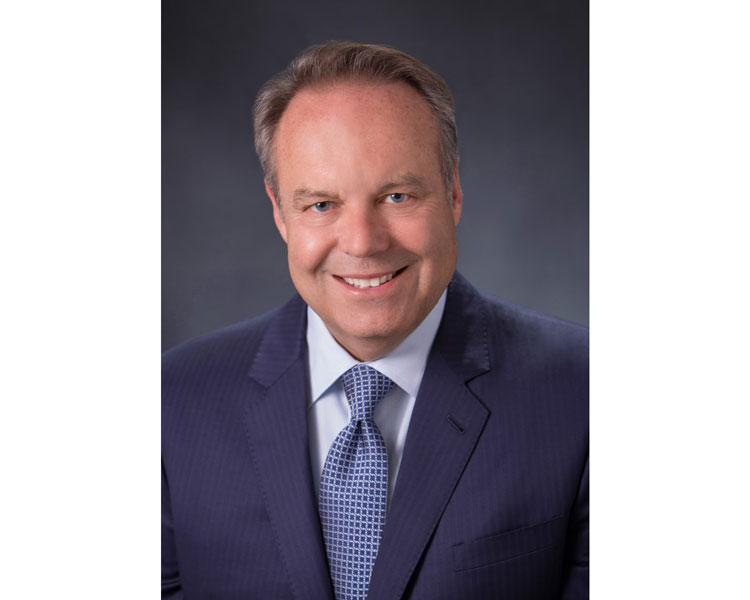Sector has proven to be more resilient than others during the pandemic.
By Dale Watchowski
In 2020, the U.S. economy contracted dramatically due to the COVID-19 pandemic, with many industries negatively impacted, including senior living. However, few real estate sectors have proven more resilient in times of turmoil than seniors housing.
Since the 2008 recession, seniors housing has outperformed many other types of real estate and has established itself as a compelling asset class for investors. An underpublicized attraction of seniors housing is its rising utilization.
Americans are living longer and seniors housing is evolving to meet the care and lifestyle needs of a diverse population. From active adult and independent living to assisted living and memory care, seniors housing addresses a serious and growing societal need. COVID-19 has made it even more need-driven than ever.
Now remains a good time to invest for those who understand the impact of the pandemic, are able to focus on operational excellence and can successfully navigate market opportunities.
Impact of the pandemic
For a large part of the population, the pandemic has revealed the alarming cost of isolation. From medication errors and falls to poor diet and depression, those of us in the seniors housing industry have helped mitigate these risks for seniors over the years, well before the searing impact of COVID-19.
The pandemic has highlighted the importance of our services, expertise, systems and operational execution. Those operators that shined through the pandemic had systems and processes in place, and have continued to hone them throughout the pandemic.
On the development side, receiving financing has proven challenging, and some who had projects ready to go could not get them capitalized. Those with communities coming out of the ground have had to grapple with an unpredictable supply chain that, in many cases, has slowed down or stopped the delivery of building materials, as well as state-mandated shutdowns creating shortages in labor.
Communities in lease-up have also faced increased move-in challenges, higher operating expenses and the continuation of natural turnover. These and other challenges have forced some to stall or sell projects and communities, providing the fiscally prepared with compelling opportunities.
Operational excellence is critical
Today’s seniors housing industry represents a mix of real estate and hospitality built upon a foundation of quality care. And while seniors housing has grown over the last 25 years to become a prominent real estate asset class, at the end of the day it is an operating business.
Investors chronically overlook the core of the business, which is offering 24/7 quality care and services for seniors. A successful investment requires extraordinary operations.
Successful operators need to have established, proven and compliant systems, processes and procedures in place. They also need to attract, train and retain staff. This is critical. If you appreciate and inspire employees, they will over-deliver for your residents — and your residents, in turn, will market for you.
It is imperative to take care of staff to keep your communities thriving. And it has never been more important to maintain the highest quality care and service. Now is not the time to invest in senior living if you cannot manage the operations effectively. Maintaining high employee morale is not “nice to have;” it is essential if you want to be successful in this business.
Understand the market
Seniors housing is a service business. When evaluating opportunities, be sure to understand what options are viable in each submarket. Some markets are oversaturated while others remain underserved.
As an example, our American House brand’s growth in Florida addressed a growing need. Based on our ability to build and buy in good markets, we went from zero properties in that state in 2015 to 11 properties today.
Success has hinged on our ability to innovate and shift with the changing needs of the market. We have also seen growth in New England, throughout the Midwest and throughout Michigan, while we continue to close on new transactions.
While the pandemic has altered our plans, it has certainly not halted them. Thanks to over 40 years of experience and an incredible team, we continue to pivot, innovate and grow a well-balanced financial portfolio.
The bottom line is that the seniors housing asset class is a potentially attractive investment for well-informed investors. Historically, seniors housing has performed well during times of economic flux and serves a growing population of citizens seeking safe, social and care-centric communities. This makes it a future-proof investment opportunity for the right investors who understand the value of expertise in operations.
Dale Watchowski is the CEO of American House and CEO and COO of REDICO, a national real estate development and investment company with more than $3 billion in total value. He also sits on the Urban Land Institute’s Senior Housing Council and serves on the board of The American House Foundation.

